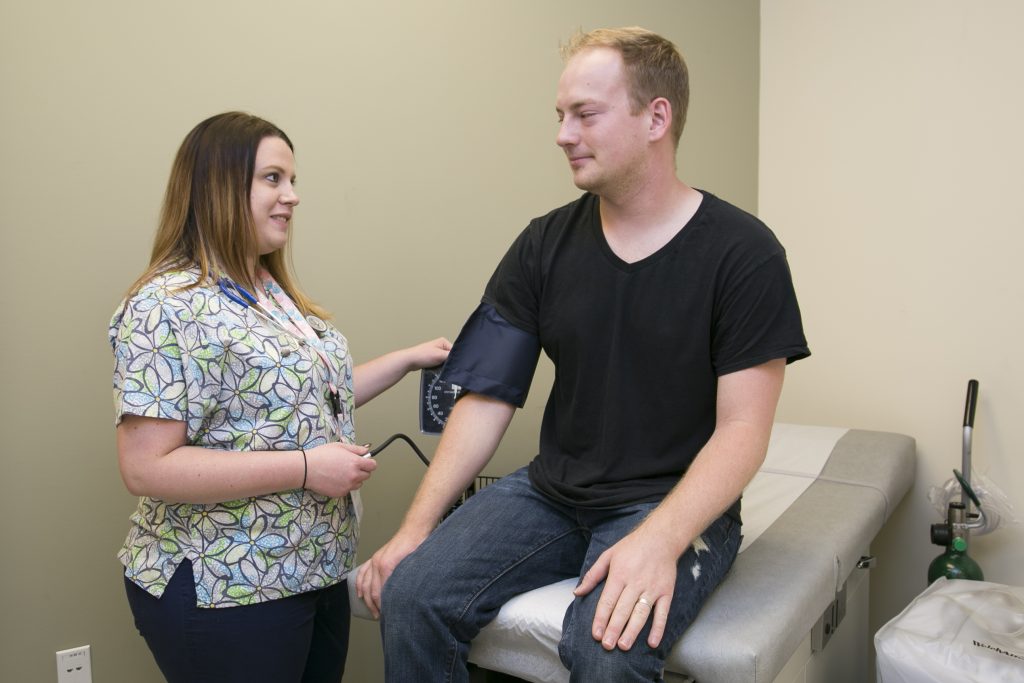How Alcohol Causes Brain Damage
Written by Melissa Carmona
& Medically Reviewed by Dr. Kevin Wandler, MD
Medically Reviewed
Up to Date
Updated 02/15/2023
Alcohol can lead to brain damage in a variety of ways. Those who use alcohol more frequently or in heavy amounts are more likely to experience brain damage. While some types of brain damage caused by alcohol use can be reversed partially or completely, other types of alcohol-induced brain damage are permanent. Even those who adhere to recommended alcohol intake levels are at an increased risk for brain damage.
Ways Alcohol-Use Damages the Brain
There are several ways in which alcohol can lead to temporary or permanent brain damage. Head injuries are a significant cause of brain damage in those who use alcohol. Because of the impaired judgment and altered balance that alcohol can cause, alcohol use increases the risk of a head injury that can lead to brain damage. Between 35% and 81% of people who have traumatic brain injuries get these injuries while intoxicated, and 42% of people who get traumatic brain injuries were heavy drinkers prior to the injury.
Alcohol can lead to brain damage, simply by rewiring and changing the way the brain works. A single drink temporarily changes the way that receptors in the brain work, but drinking consistently over a prolonged period of time will lead to lasting changes in the brain as the brain rewires itself to accommodate the frequent changes to receptors in the brain.
Alcohol can also cause severe and irreversible brain damage in children if it is used during pregnancy. This condition is called fetal alcohol syndrome and leads to children being born with decreased brain volume and lower intelligence than others at their developmental level.
Alcohol can damage the brain in a more temporary way by causing severe liver damage. A liver that is not functioning will not process a chemical called ammonia that it normally does process. The build-up of ammonia will lead to confusion and changes in brain function until ammonia levels can be reduced to normal. This condition is called hepatic encephalopathy.
Alcohol may also cause a severe condition called Wernicke-Korsakoff syndrome. This can lead to temporary or permanent brain damage.
If you are struggling with alcohol addiction, we are here for you.
What is Wernicke-Korsakoff Syndrome?
Wernicke-Korsakoff syndrome is a very damaging brain condition that is caused by alcohol use. Alcohol reduces your body’s ability to absorb, make and store a vitamin called thiamine. This leads to a temporary condition called Wernicke’s encephalopathy that causes confusion and decreased muscle coordination. Wernicke’s encephalopathy often leads to a condition called Korsakoff’s psychosis, a permanent form of brain damage to multiple areas, including the cerebellum, and causes permanent muscle coordination problems and memory problems, especially a decreased ability to make new memories and learn new things.
Signs of Alcohol-Induced Brain Damage
There are several signs of alcohol-induced brain damage, although the symptoms may be different depending upon the type of brain damage caused. Some signs of alcohol-related brain damage may include:
- Confusion
- Decreased muscle coordination
- Inability to form new memories
- Difficulty learning
- Difficulty remembering things
- Slurred speech
- Agitation
- Unequal pupil size
- Decreased or no responsiveness
- Difficulty communicating
If any of these symptoms are present after the effects of alcohol should be wearing off, then it is an indicator that brain damage may be present. If someone suspects alcohol-related brain damage, they should have the affected person visit with a doctor. Only a doctor can definitively tell if an individual has suffered from alcohol-related brain damage.
Alcohol Addiction Treatment
Someone who has an alcohol addiction is more likely to experience at least one form of alcohol-related brain damage. Any brain damage caused by alcohol may get worse if alcohol use continues, and the best way to prevent further damage and recover lost brain function is to stop using alcohol as soon as possible. Seeking alcohol addiction treatment that helps with alcohol withdrawal symptoms and provides strategies for staying sober provides the best chance possible for becoming and staying sober.
Prevention and Reversal of Alcohol-Induced Brain Damage
Research shows that the brain damage caused by alcohol use can be reversed in some cases. Stopping alcohol use will remove the source of some types of alcohol-related brain damage and will allow the brain to develop new cells and connections which may reverse some of the damage caused by alcohol. This does depend highly upon the type of alcohol-related brain injury. Hepatic encephalopathy, for example, may completely resolve when alcohol use is stopped, while healing for a traumatic brain injury will typically not be significantly affected by alcohol use.
Top Reads About Alcohol Addiction

How Long Does Alcohol Stay In your System?
The time it takes for alcohol to have an effect depends on a variety of factors and will be… Read More

Alcohol Addiction Treatment in Ohio
If you can’t seem to stop drinking, you’re not alone. Let our experts help you heal… Read More

Am I an Alcoholic?
Knowing the signs of alcohol addiction can help you identify whether you or a loved one may be at… Read More

Does Alcohol Affect the Kidneys?
Alcohol causes dehydration, which decreases blood flow to the kidneys and makes it more difficult… Read More

Understanding Alcoholism and Finding Resources for Alcohol Addiction
This resource guide is an overview of the information currently available on alcohol use and abuse… Read More
View Sources
Opreanu, Razvan C.; Kuhn, Donald; Basson, Marc D. “The Influence of Alcohol on Mortality in[…]aumatic Brain Injury.” Journal of the American College of Surgeons, June 2010. Accessed Sep. 1, 2019.
Holmes, Andrew, et al. “Chronic Alcohol Remodels Prefrontal Neur[…] Extinction Encoding.” Nature Neuroscience, September 2012. Accessed Sep. 1, 2019.
Centers for Disease Control and Prevention. “Fetal Alcohol Spectrum Disorders (FASDs).” March 29, 2019. Accessed September 1, 2019.
Butterworth, Roger F. “Hepatic Encephalopathy.” National Institute on Alcohol Abuse and Alcoholism, Sep. 29, 2004. Accessed September 1, 2019.
National Institute on Alcohol Abuse and Alcoholism. “Alcohol’s Damaging Effects on the Brain.” October 2004. Accessed September 1, 2019.
Andrews, Mark A. W. “How Much Can the Brain Recover From Year[…]Alcohol Consumption?” Scientific American. September 1, 2011. Accessed September 1, 2019.
National Institute on Alcohol Abuse and Alcoholism. “ALCOHOL’S DAMAGING EFFECTS ON THE BRAIN.” October 2004. Accessed April 12, 2021.
Authorship


